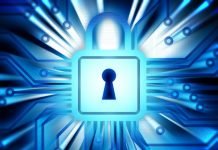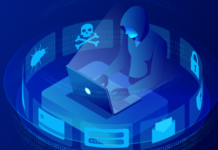Cyber Security Dos and Don’ts for Remote Working This is a quick guide to avoiding common pitfalls that many businesses face if they have workers who are prone to putting confidential information online, or sharing that information online. If you own a small business that has a network of trusted clients, then you know the potential disaster that an unauthorized person can create if he gets into the “unseen” areas of your system. In this article, then, we’ll discuss a few dos and don’ts of cyber security for remote working.
Most of the time, cybercriminals will try to get into your home network using a vulnerability in one of the many software programs that you use for maintaining your security. Some common ways of getting past security measures include installing malware onto your computer, or sending you spam through email. You should always be very vigilant about these activities. You should never go into the “safe” zone when it comes to your passwords or other important information. Here, then, is a list of a few dos and do nots for keeping your home network secure:
Don’t send any sensitive information to anyone through email. You should never give out your email address to anyone unless you trust them. Many phishing attacks happen via email. Make sure your computer is always free and clear of any signs of malware or spyware. If you need to, set up multiple email accounts for different purposes and use passwords for all of them.
Install antivirus software and anti-virus updates regularly. Most modern antivirus software provides virus protection as part of its security tips for working online. If you don’t have antivirus software, it’s important to download the latest version and install it. Viruses and malware can strike at any time from someone who may be lurking on the Internet. The best way to protect yourself is to make sure that you can identify any malicious attacks, which are often associated with phishing attacks.
Always think before you act. You should protect your data even if you don’t feel that you need to. Don’t give away your personal or financial data just because you’re trying to be extra safe. If it is needed by a business colleague or an employer, tell them to protect themselves or inform you immediately if they attempt any kind of attack.
Use firewalls to protect yourself. Many companies today use a piece of software called a firewall to protect their network from data and application attacks from other systems. When you are using the Internet, you are opening up a wide variety of possible threats. It is more important to protect yourself from someone who has physical access to your system than to get a virus off of someone else’s computer that might never come to harm.
Be careful about what information you publish over the Internet. In particular, you should stay away from giving out financial or personal information through email. There are cyber attacks that allow a person to steal your bank account numbers, credit card numbers, and social security numbers. If you need to send out confidential information over the Internet, you will want to use a virtual private network, or VPN, to mask your identity.
Use passwords and other security features to prevent unauthorized access to your system. A common method that hackers use is to send spoof emails to collect sensitive data from password protected areas of a website. While most web browsers have built in protection against spoofing, you may be using weak passwords and other security features that are leaving you open to compromise. You also don’t want to make your passwords too easy to guess.
Also Read: Best Cybersecurity Tips for Remote Workers








